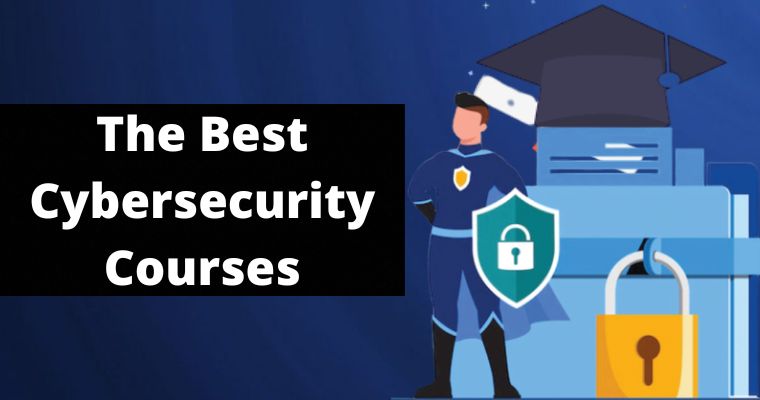As technology advances, it spells both joy and doom for organizations. While automation can vastly improve the efficiency of a business, there’s a dark side to technological advancement: cybercrime is becoming all too easy.
Organizations must protect themselves from cybercrimes like hacking, phishing, and malware. They require cybersecurity measures to ensure their data remains safe, making studying cybersecurity a lucrative field for tech beginners who wish to enter an emerging domain.
Due to the increasing demand for cybersecurity software and experts, several cybersecurity certifications and boot camps are available. Here are some excellent courses you can do as a beginner.
Table of Contents
1. Ethical Hacking Courses
Walking a mile in a hacker’s shoes can help you understand the security risks in your system. In ethical hacking, you hack an organization’s servers, often with their permission, to identify and analyze the vulnerabilities in the cybersecurity systems and inform the company of them.
Ethical hacking courses teach different avenues of hacking, including systems hacking, web server hacking, and wireless network hacking. All these differ considerably in terms of the required technical knowledge.
Studying an ethical hacking course can help you become a Certified Ethical Hacker (CEH). The International Council of Electronic Commerce issues this certification.
2. Information Security Management
Information security managers manage, design, and oversee security programs. You also learn program development and risk management strategies as a part of the course.
Cybersecurity is a subdomain of this field, but the terms are often confused. While both information security and cybersecurity prevent information breaches and data losses, information security isn’t limited to the digital world.
Studying information security equips you with the skills required to protect both cyber and physical data, making hiring information security experts ideal for companies.
You can apply for a Certified Information Security Manager (CISM) certificate from ICASA once you gain expertise in information security management.
3. Penetration Testing Courses
Penetration testers or pen testers are cybersecurity experts that help organizations identify and resolve security vulnerabilities in their networks and actively functioning systems.
Their role is distinct from vulnerability testers, who look for vulnerabilities in systems under development.
Good pen testers require a bachelor’s or a master’s degree in cybersecurity or a related major and skills like coding, a firm grip on operating systems, and knowledge about network protocols.
You can also get an additional certification like the GIAC Penetration Tester (GPEN), issued by Global Information Assurance Certification.
4. Cloud Security Management
Most organizations have shifted to cloud-based data storage as it prevents data loss and makes information accessible to several stakeholders. However, cloud storage also makes your data more vulnerable, creating the need for cybersecurity experts who specialize in cloud security.
One such certification cybersecurity grads can get is the Certified Cloud Security Professional (CCSP) from International Information System Security Certification Consortium.
To get this certification, individuals must demonstrate an understanding of cloud security architecture, design, operations, and service orchestration.
Endnote
Cybersecurity is one of the most prominent concerns of organizations in modern times, so cybersecurity experts are in huge demand. Young cybersecurity graduates can further their careers by getting additional certifications like CEH, CISM, GPEN, and CCSP.
These certifications deal with aspects from ethical hacking and penetration testing to information security and cloud security management. Getting a relevant certification can significantly boost your career and the demand for your skills in the market.


